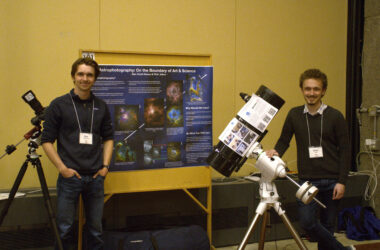TV Shows Best The Bear (Season 2) Avoiding the sophomore slump attributed to most sequels (I’m looking at you, Madagascar 2), season 2 of The Bear manages to retain the first season’s hype. The series allows for the exploration and growth of supporting characters: Pastry chef Marcus (Lionel Boyce) travels[Read More…]
Private
Students take to the streets to oppose Quebec government’s proposed tuition hikes
Red felt squares dappled McGill’s Y-intersection on Nov. 30, as students gathered to once again protest the Quebec government’s proposed tuition hikes for English-speaking universities. The hikes, announced on Oct. 13, would nearly double fees for out-of-province students at schools like McGill and Concordia from around $9,000 to $17,000 annually.[Read More…]
AGSEM completes contentious fifth round of negotiations over TA contracts with McGill
Content Warning: Discrimination, sexual violence A fifth round of negotiations between McGill and the Association of Graduate Students Employed at McGill (AGSEM) over teaching assistants (TAs)’ collective contract took place on Nov. 22. According to a press release sent to The Tribune by AGSEM, the primary issue on the table[Read More…]
The Tribune Explains: McGill’s ban of WeChat
On Oct. 16, McGill announced a ban on the installation and use of the application WeChat on McGill-owned and managed devices, effective immediately. WeChat is an instant messaging and social media app developed by Chinese company Tencent, with an estimated 1 billion monthly users. What does this policy mean? People[Read More…]
SSMU Legislative Council approves SSMU statement for empathy and against doxxing
The Students’ Society of McGill University (SSMU) gathered on Nov. 9 for its fifth Legislative Council meeting of the semester. Members of the council discussed students’ responses to tuition hikes, issues of food security on campus, and a potential statement in response to the ongoing Israel-Palestine conflict. The meeting started[Read More…]
McGill announces pause to $50 million French learning program
On Oct. 19, McGill announced a pause in the rollout of its five-year, $50 million Rayonnement du français initiative, intended to increase access to French-learning resources in order to improve students’ and staff’s knowledge of the language. In an email to the McGill community on Oct. 25, Principal and Vice-Chancellor[Read More…]
Let’s reel in the disappointment surrounding Kim Ng’s departure from the Marlins
On Oct. 16, Major League Baseball’s Miami Marlins announced that they would be parting ways with Kim Ng, the first woman to hold the position of general manager (GM) in any of North America’s four major men’s sports. In a statement, Marlins’ chairman and principal owner Bruce Sherman announced that[Read More…]
Amina Kudrati-Plummer wins SSMU VP Finance special by-election
On the afternoon of Friday Oct. 20, polls for the Students’ Society of McGill University (SSMU) Vice President (VP) Finance by-election came to a close with only 12.4 per cent of eligible students voting. Amina Kudrati-Plummer won the election with 60.6 per cent of the votes. The only other candidate,[Read More…]
Counter-protestors rally against anti-trans demonstrators outside Roddick Gates
Over 400 people congregated in front of the Roddick Gates on Sherbrooke on Sept. 20 to join the Protect our Trans Siblings counter-protest against the 1 Million March 4 Children. There was a heavy police presence on-site to separate the two sides, which later confronted each other in heated exchanges[Read More…]
Advancing scientific frontiers through undergraduate research
On March 15, the fourth Undergraduate Poster Showcase took place in the Students’ Society of McGill University Ballroom, bringing in a new cohort of student scientists. Nearly 400 attendees congregated that evening to learn from the 117 students presenting their projects, ranging from earthquakes melting rocks to building a safer[Read More…]















